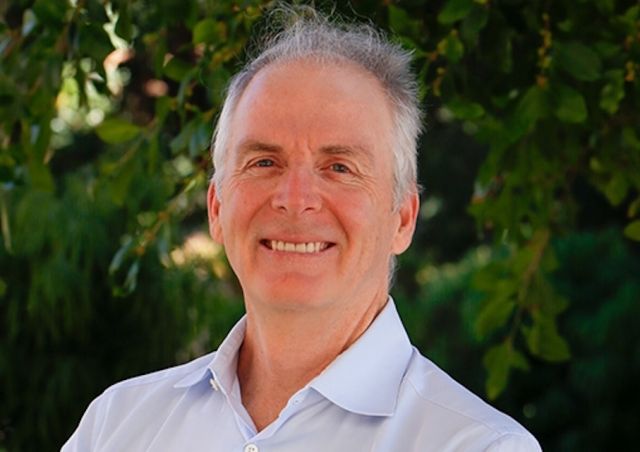The ICB’s Craig Hawker Elected to the National Academy of Sciences

Distinguished Professor Craig Hawker
Inspirational project leader of two ICB projects and distinguished professor of Materials and Chemistry & Biochemistry at UCSB, Craig Hawker has been elected to the National Academy of Sciences (NAS) and takes his place among the academy’s 3,029 national and international members. The organization offers membership to scientists in recognition of distinguished and continuing achievements in original research. Hawker’s election comes a little more than a year after he was also admitted into the National Academy of Engineering (NAE).
Hawker is one of three UCSB professors elected this year, including a former ICB project leader and colleague, Professor of Chemistry & Biochemistry Alison Butler as well as UCSB Geography Professor Richard Church.
“I am humbled to be elected as a fellow of the National Academy of Sciences, joining the ranks of so many exceptional scientists. It is a special recognition that I share with my talented students, collaborators, and mentors. Without their contributions, this would certainly not have been possible,” Hawker said. “It is especially thrilling to be elected with my colleague, Alison Butler, illustrating the strength of chemistry and materials research at UCSB. As global challenges emerge, our multidisciplinary scientific and engineering initiatives position UCSB to be a world leader in providing solutions via translational research, innovation, and entrepreneurship.”
Hawker, who is the Alan and Ruth Heeger Chair in Interdisciplinary Science and also serves as the co-director of the California NanoSystems Institute (CNSI) and the Dow Materials Institute, was cited by the NAS for “contributions to polymer chemistry through synthetic organic chemistry concepts and the advancement of molecular engineering principles.”
His research activities are focused on integrating cross-disciplinary studies to develop nanostructured polymeric materials having unique physical and mechanical properties for applications in biomaterials and energy research. His groundbreaking work has served as the basis for more than eighty U.S. patents and ten start-up companies. A number of those companies have developed drugs to improve the quality of life for people who suffer from chronic kidney disease (CKD). In 2020, he received the American Chemical Society’s Kathryn C. Hach Award for Entrepreneurial Success in recognition of his “innovative leadership in creating, developing, and commercializing revolutionary polymer-based therapeutics and personal-care products through multiple successful start-up companies.”
“Our UCSB community is so honored and proud to congratulate Professors Hawker, Butler, and Church,” said Chancellor Henry Yang.“Election by one’s peers to the National Academy of Sciences is a deeply meaningful recognition of years of hard work, pioneering research and unique contributions to science and our society. We are inspired by their achievements and delighted to see our distinguished colleagues honored in this way.”
The National Academy of Sciences was established under a congressional charter signed by President Abraham Lincoln in 1863. It recognizes achievement in science by election to membership and—with the National Academy of Engineering and the National Academy of Medicine—provides science, engineering, and health policy advice to the federal government and other organizations.
